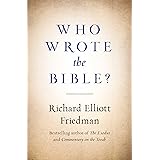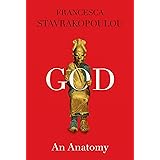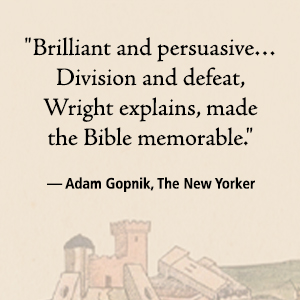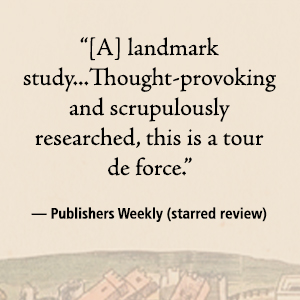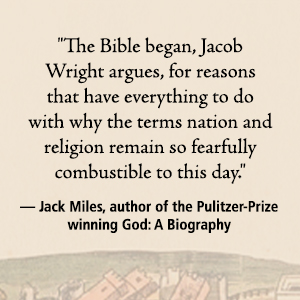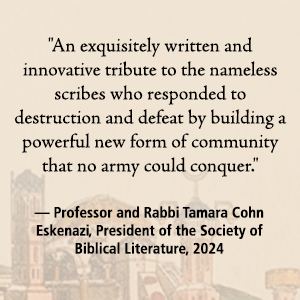
Enjoy fast, free delivery, exclusive deals, and award-winning movies & TV shows with Prime
Try Prime
and start saving today with fast, free delivery
Amazon Prime includes:
Fast, FREE Delivery is available to Prime members. To join, select "Try Amazon Prime and start saving today with Fast, FREE Delivery" below the Add to Cart button.
Amazon Prime members enjoy:- Cardmembers earn 5% Back at Amazon.com with a Prime Credit Card.
- Unlimited Free Two-Day Delivery
- Streaming of thousands of movies and TV shows with limited ads on Prime Video.
- A Kindle book to borrow for free each month - with no due dates
- Listen to over 2 million songs and hundreds of playlists
- Unlimited photo storage with anywhere access
Important: Your credit card will NOT be charged when you start your free trial or if you cancel during the trial period. If you're happy with Amazon Prime, do nothing. At the end of the free trial, your membership will automatically upgrade to a monthly membership.

Download the free Kindle app and start reading Kindle books instantly on your smartphone, tablet, or computer - no Kindle device required.
Read instantly on your browser with Kindle for Web.
Using your mobile phone camera - scan the code below and download the Kindle app.

OK
Why the Bible Began: An Alternative History of Scripture and its Origins Hardcover – October 19, 2023
Purchase options and add-ons
***One of the five books on religion selected by Publishers Weekly's for their list of The Best Books of 2023***
-------------------------------------------------------------------------
"A revelation, even to those who have read the Bible for a lifetime!
"We witness how in the aftermath of catastrophic defeat and devastation, the biblical authors fashioned a new form of political community--one in which a shared body of texts provided common ground for deeply divided communities and the marginalized in their communities. At the heart of the Hebrew Bible is, as Wright shows, not a creed but a question: What does it mean to be a people? In our time of deepening divisions, both this question and the ways in which these ancient writers addressed it deserve renewed, and serious, attention."
-- Robert M. Franklin, President Emeritus, Morehouse College
Why did no other ancient society produce something like the Bible? That a tiny, out of the way community could have created a literary corpus so determinative for peoples across the globe seems improbable.
For Jacob Wright, the Bible is not only a testimony of survival, but also an unparalleled achievement in human history. Forged after Babylon's devastation of Jerusalem, it makes not victory but total humiliation the foundation of a new idea of belonging. Lamenting the destruction of their homeland, scribes who composed the Bible imagined a promise-filled past while reflecting deeply on abject failure. More than just religious scripture, the Bible began as a trailblazing blueprint for a new form of political community. Its response to catastrophe offers a powerful message of hope and restoration that is unique in the Ancient Near Eastern and Greco-Roman worlds.
Wright's Bible is thus a social, political, and even economic roadmap - one that enabled a small and obscure community located on the periphery of leading civilizations and empires not just to come back from the brink, but ultimately to shape the world's destiny. The Bible speaks ultimately of being a united yet diverse people, and its pages present a manual of pragmatic survival strategies for communities confronting societal collapse.
"A fascinating look at the Bible and its origins — not necessarily who, what, when, and where, though those are all discussed, but above all, why? Why was it created? Why did it originate where it did? Why did it survive and resonate so much down through the ages? Armed with a scholar's acumen and a writer's dexterity with prose, Jacob Wright addresses these questions and offers us an intriguing alternative look at the origins of the Hebrew Bible and why it mattered both back then and still today.
"Sure to elicit much discussion and debate, this is a must read by one of the most interesting and provocative scholars working today."
-- Eric Cline, archeologist, historian, and author of the best-selling 1177 BCE: The Year Civilization Collapsed.
- Print length500 pages
- LanguageEnglish
- PublisherCambridge University Press
- Publication dateOctober 19, 2023
- Dimensions6.5 x 1.25 x 9.25 inches
- ISBN-10110849093X
- ISBN-13978-1108490931
The Amazon Book Review
Book recommendations, author interviews, editors' picks, and more. Read it now.
Frequently bought together

Similar items that may deliver to you quickly
From the Publisher

|
|
|
|
|---|---|---|
|
|
|
|
|
|
|
|
|---|---|---|
|
|
|
|
Editorial Reviews
Review
A sweeping, and stunning, account of the making of the Bible — and of the "People of the Book." Writing with both vision and compassion, Wright explores how generations of scribes responded to collective trauma by inventing new roles for writing and reading. These counter-cultural thinkers not only placed scripture at the heart of religion; they also discovered how texts have the capacity to consolidate and shape robust reading-communities. Why the Bible Began is a majestic achievement, one worthy of wide attention! —The Imam Abdullah Antepli, globally recognized interfaith-scholar and Vice President & Provost of Duke University.
"Profoundly insightful. Wright demonstrates how ancient Israel and Judah developed the resources to construct a resilient nationhood not in spite of but, paradoxically, because of the experience of military defeat, economic devastation, and diaspora. No other kingdom of the ancient Near East was able to do so. Today, as so many communities, peoples and nations face similar critical threats to their existence, Wright's book provides a fascinating and incisively argued case study of how one people drew upon its cultural resources not simply to survive but to generate a vibrantly creative intellectual and spiritual tradition." —Carol A. Newsom, Candler Professor Emerita of Old Testament/Hebrew Bible, Emory University
"This book takes questions about the Bible's origins to another level of historical inquiry.... Superbly written and a fascinating approach that expands the normal range of biblical studies in a remarkable way!" —Konrad Schmid, co-author of The Making of the Bible: From the First Fragments to Sacred Scripture
"By one of the brightest minds in the field, this is a book on the Bible that all will want to read: an exquisitely written and innovative tribute to the nameless scribes who responded to destruction and defeat by building a powerful new form of community that no army could conquer. Venturing beyond the Bible's religious teachings to its political and social dimensions, Wright's tour de force demonstrates why this body of literature still matters for us today." —Professor and Rabbi Tamara Cohn Eskenazi, President of the Society of Biblical Literature, 2024
"What a compelling read, and I found myself enthralled!
This beautifully written work offers fresh insights on the origins of the People of the Book. It not only draws on the most recent historical research, but also incorporates contemporary approaches such as trauma hermeneutics, gender, and postcolonial criticism in a way that makes it feel that these approaches are central to the project and not merely an afterthought.
The presence of female characters especially struck me as we move from the nation's earliest origins, with a Family Story becoming a People's History and the National Narrative supplementing a Palace History. Indeed, this book speaks of writing to survive as the voices of the people of protest are preserved for us amidst the pages of the biblical witness." —L. Juliana Claassens, author of Writing and Reading to Survive
"A landmark study.... Thought-provoking and scrupulously researched, this is a tour de force."-- Publishers Weekly (Starred Review) -- included with four other books on religiion in their Best Books of 2023.
"A revelation, even to those who have read the Bible for a lifetime!
We witness how in the aftermath of catastrophic defeat and devastation, the biblical authors fashioned a new form of political community--one in which a shared body of texts provided common ground for deeply divided communities and the marginalized in their communities. At the heart of the Hebrew Bible is, as Wright shows, not a creed but a question: What does it mean to be a people? In our time of deepening divisions, both this question and the ways in which these ancient writers addressed it deserve renewed, and serious, attention." —Robert M. Franklin, President Emeritus, Morehouse College
Book Description
About the Author
Product details
- Publisher : Cambridge University Press (October 19, 2023)
- Language : English
- Hardcover : 500 pages
- ISBN-10 : 110849093X
- ISBN-13 : 978-1108490931
- Item Weight : 1.87 pounds
- Dimensions : 6.5 x 1.25 x 9.25 inches
- Best Sellers Rank: #25,417 in Books (See Top 100 in Books)
- #32 in Jewish Sacred Writings (Books)
- #36 in Old Testament Bible Study (Books)
- #59 in Christian Biographies (Books)
- Customer Reviews:
About the author

Dr. Jacob L. Wright is a professor of Hebrew Bible / Old Testament at Emory University, which boasts one of the world's leading doctoral programs in biblical studies. Before coming to Emory, he taught at the University of Heidelberg in Germany.
As an American with a European education, he is widely known for his ability to blend a wide range of historical, religious, and geographical perspectives on the Bible. His writing and teaching are thoroughly interdisciplinary, demonstrating how the ideas of the Bible and other ancient writings bear directly on central problems that face our societies in modern times. He brings to his work first-hand acquaintance with archeological finds and primary sources from ancient Mesopotamia, Egypt, and Greece. As a testimony to his distinctive interdisciplinary approach to biblical studies, he recently received a full Faculty Fellowship from the National Endowment for the Humanities, which had not been awarded in biblical studies for many years prior.
Wright writes on an array of topics, ranging from social life in ancient Israel (feasting, war commemoration, urbicide, etc.) to the formation of biblical writings. His first book, Rebuilding Identity: The Nehemiah Memoir and Its Earliest Readers (De Gruyter), won the prestigious Templeton Award for first books in religion. His current research treats a wide range of phenomena related to war and society in ancient Israel.
632YYQ
Customer reviews
Customer Reviews, including Product Star Ratings help customers to learn more about the product and decide whether it is the right product for them.
To calculate the overall star rating and percentage breakdown by star, we don’t use a simple average. Instead, our system considers things like how recent a review is and if the reviewer bought the item on Amazon. It also analyzed reviews to verify trustworthiness.
Learn more how customers reviews work on Amazon-
Top reviews
Top reviews from the United States
There was a problem filtering reviews right now. Please try again later.
Excuse the non-scholarly formatting of this review, given Amazon’s editing restrictions.
I am giving Professor Wright the benefit of the doubt with the five star review. That may change in the future as I continue reading and commenting here.
Comments are quick.
I just added today (October 29, 2023) comments on Chapter 1 regarding Wright's comments about the evolution of writing systems.
PROLOGUE
FIRST. Wright’s praise of Robert Alter’s three volume “The Hebrew Bible” is spot on. (xiv)
SECOND. Wright states that in comparison to the Bible, “the literary legacies of [ancient] leading civilizations were completely forgotten.” (xv) What about Book of the Dead; Gilgamesh; Upanishads; The Ryamayan; Mahabharata; Bhagavad Gita; Homer. Virgil, and so on?
THIRD. Wright quotes Bart Ehrman (xv) to support his statement that “a sacred text was rarely central to [the] rites and rituals” of the ancients. (Egyptian Book of the Dead comes to mind, without thinking, as one of those rareties.) But more disturbingly, anything Bart Ehrman says is highly suspect after Richard Bauckham’s masterpiece of scholarship and logic: “Jesus and the Eyewitnesses—The Gospels as Eyewitness Testimony.” (2006, 2nd Ed. 2017). After Bauckham, Ehrman’s Form Criticism is dead, and anything Ehrman says based on his form critical approach to the Bible is more than deeply suspect. In only reading Wright’s Prologue thus far, quoting Ehrman was not an auspicious beginning and puts me in a suspicious reading mood right out the chute. I hope Wright’s interesting thesis is not reliant on a form critical approach to the Bible. If his thesis is so reliant, his book is already dated. We’ll see. I will be back.
INTRODUCTION
Interesting brief history of the ancient orient, especially Assyria and “The Royal Library of Ashurbanipal.”
Wright’s questions here are intriguing. He quotes Wellhausen, “Why, beginning from approximately the same starting point, did Israelite history end at a very different place from say, their Moabite neighbors?” (9)
Wright argues that there is a difference between a “state” (or empire) and a “nation” and that “the biblical authors were creating the first nation” or “national identity.” (11-12) A “nation . . . is a political community [not necessarily a geographical territory] held together by shared memories and a will to act in solidarity . . . a state of mind. . . . a diverse political community whose members share a culture and a collective consciousness.” (12)
I can see now, despite my second criticism of the Prologue (above), what Wright is saying about other ancient literary legacies being forgotten in comparison to the Bible. None of those literary legacies created a “nation” in Wright’s definition.
Wright argues that his book is unique in that it asks NOT the “who, what, when, and where” of traditional biblical scholarship, but the “why?” Why did the Bible originate? Why is it so unique?
Finally, I found intriguing the following questions posed of ancient Israel, but that are still modern in their applicability: “How do we survive in a world ruled by empires, and in which we are the underdogs? Can we still be a people without kings to define our destiny? And what does it even mean to be a people?” (15)
(Errata to correct in second edition: page 13, eighth line from bottom: extraneous word “the.”)
CHAPTER 1—ABRAHAM AND SARAH
Good solid basic information. But I have a disagreement with one statement:
Wright: “Many centuries of experimentation produced two elaborate writing systems: cuneiform in Mesopotamia and hieroglyphics in Egypt. The former is likely older, and thanks to archaeological discoveries, we can watch the texts slowly evolve from simple accounting receipts with rudimentary syntax to elaborate literary productions.” (22)
This is a half-truth and could be misinterpreted to mean that archaeological discoveries prove that Sumerian and Egyptian writing systems evolved over centuries. No.
The most comprehensive single book on the world’s writing systems is the collection of essays by the world’s leading grammatologists (scholars who study writing systems) found in Peter T. Daniels and William Bright, eds, "The World’s Writing Systems" (Oxford University Press, 1996). Other excellent books on writing systems include John DeFrancis, "Visible Speech—The Diverse Oneness of Writing Systems" (U of Hawaii Press, 1989) Albertine Gaur, "A History of Writing" (British Library, 1984); Roy Harris, "The Origin of Writing" (Bloomsbury Academic, 2013), and Andrew Robinson, (The Story of Writing), Second Edition, (London: Thames & Hudson, 2007).
In regard to the most ancient Sumerian (and earliest) writing system, Professor Michalowski writes: “the structure and logic of the system indicate that it was invented as a whole and did not develop gradually. . . . The number signs may have been adopted from small clay counters that were used independently . . . But the system as such was designed in one fell swoop. Those who favor an evolutionary model of the development of writing cite certain ‘antecedents' to proto-cuneiform . . . The inventor or inventors of proto-cuneiform drew on a variety of [] ideas, but the quantum leap to the conceptualization of the earliest writing system was without precedent.” (Piotr Michalowski in "The World’s Writing Systems," 35-36, Daniels and Bright eds. Oxford.)
In brief: there is no evidence of sophisticated Sumerian cuneiform “evolving.” The system exploded on the scene around 3200 BC.
The one thing that grammatologists agree on is that the earliest known writing systems (specifically Sumerian and Egyptian) dramatically appeared without precedent around 3200 to 3000 BC.
There is absolutely no archaeological evidence for the evolution of these earliest writing systems. NONE—NO EVIDENCE OF EVOLUTION IN WRITING SYSTEMS! Let that sink in. We go from simple vertical marks on cave drawings in France before 8000 BC to “Vinca culture” simple graphic marks in Yugoslavia (ca. 5300-4300 BC) to—KABOOM—evidence of sophisticated writing systems (Sumerian and Egyptian) emerging whole cloth around 3200 BC. No evidence at all of a gradual evolution. Fascinating.
This is akin to a Cambrian Explosion in human history. We have a pre-history of humans (pre 4000 BC) with evidence of buildings and burial customs—BUT NO EVIDENCE OF WRITING SYSTEMS prior to 3200 BC! We have simple tokens with simple etched marks for thousands and thousands of years but no evidence in all the pre-4000 BC graves and ruins of a gradual development of writing systems. No syllabaries, alphabets, or complex written grammatical constructions. Nada, nichts, none. These pre-4000 BC “humans” obviously communicated in spoken language, BUT THEY APPARENTLY HAD NO WRITING SYSTEMS! NO ARCHAEOLOGICAL EVIDENCE FOR THE SLOW, GRADUAL EVOLUTION OF WRITING SYSTEMS!
Why? Certainly over tens and tens of thousands of years--and thousands of pre 4000 BC archaelogical sites--and thousands of archaelogists poring over those sites--certainly, surely there would be some evidence of a slow, gradual evolution of writing systems!
All this makes one revel in the mystery of what occurred around 3200 B.C. We have homo sapiens before 4000 BC, but no “humans” who could write (a central component of what civilization and being human means)—not until around 3200 BC. It makes one wonder about the “Genesis of the Written Word” (Hugh Nibley). Here is one take: Cuneiform tablets from around 1800 BC indicate that “The Sumerians believed their script was an invention of the gods.” (Michalowski in The World’s Writing Systems, 45; Daniels and Bright eds, 5.) An invention that all scientific evidence indicates (and no scientific evidence refutes) exploded on the scene WHOLE CLOTH, full-on sophisticated, around 3200 BC. Hmmm, makes one wonder!
This book is divided into five sections. Each section is an explanation of the historical framework and explanation for the Hebrew Scriptures. He weaves each of these sections together to show how the sacred texts formed a unifying force of peoplehood. Wright points out the minds of the biblical communities were distinguished from the competing world views. Starting with the creation narratives of the Ancient Near East (ANE), the community of the Bible had different origins. In the ANE literature the kings were made in the image of deity, whereas in the Bible, humanity was created in the imago dei. This radical divergence at the headwaters of humanity set people on a course for destiny towards peoplehood and community. Furthermore, Wright pushes past the traditionally held views of creation. Without discounting established views of creation, namely creatio ex nihilo (creation out of nothing), he argues for creation ex profundis (creation out of the deep). This view shaped the community by tasking community with “making space for the sacred and bringing light into the darkness”. When the community failed and was vanquished, their understanding of creation held the believing community together through exile, slavery, and threat of annihilation.
Wright goes on to prove how the corpus of the prophetic texts gives words to the communal trauma experienced by the community. Through these words, the community can express grief and sing for joy. This is why the Bible reaches beyond religion because it speaks into the human soul and provides meaning and context for suffering. Denial is a form of deception, the opposite of truth. The community of faith relied on scribes and prophets to convey the message of their existence, often it was through lament. Culture we would do well to recognize our plight and utilize the words of others to exegete our own soul.
The book emphasizes the “sages” of biblical literature towards the end. This is where these books would be placed in the Hebrew Cannon. Wright saves his best writing towards the end and shows that there is room for other voices – voices of protest that come from the people of protest. These voices no doubt are voices that speak from wisdom’s chair. The biblical community is a community that values the voices of others. One of Wright’s great statements is, “The nation’s strength depends upon all its members being educated in its history, laws, lore and wisdom”. He continues to advocate for “broad participation in public life”- this single statement is perhaps worth the price of the book!
This edition is recommended for academics and students of history, philosophy, classical literature, religious studies, and current events, this book touches on the passion of each of those subjects. Wright pens this book with simplicity that would appeal to a first-year college student and simultaneously crafts his writing in such a way that satisfies a graduate reading level.
In an age of competing voices, conflicting news reporting, and general chaos, we need the simplicity of Wright’s writing to know the difference between truthtelling and mythmaking. Admiral Stavridis, at the recommendation of General Charles Krulak, included the Bible in his book, The Leaders Bookshelf. This book confirms that recommendation. We need Dr. Wright’s Why the Bible Began on our bookshelf. I consider my research Why the Bible Began, to be more than historical non-fiction, it is a warning for societies that don’t experience peoplehood, and an invitation for people to find a unifying framework.
He makes a strong case for his contention and shows a good knowledge and understanding of contemporary research but sometimes seems to get a little ahead of himself in his assumptions. A quick case in point: it is understood that after the destruction of Israel, it appears that scribes brought a history with them to Judah and this was redacted quite heavily by later Judean scribes. However, he then asserts that even later scribes who held an allegiance to Israel must have added additional material. Now, while I suspect he might correct in this assumption, we have very little to go on that would show the veracity of this hypothesis.
Overall, I enjoyed the book and it gave me a very interesting perspective on how the Bible was written.







